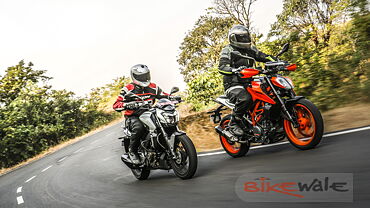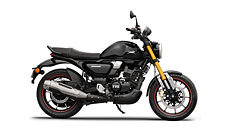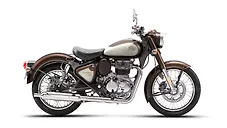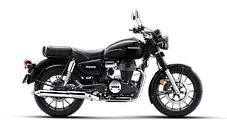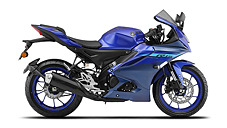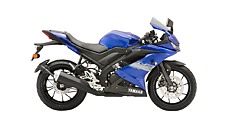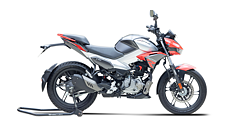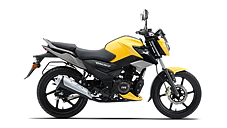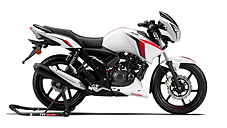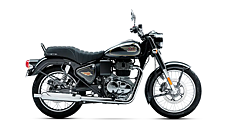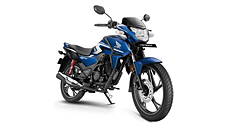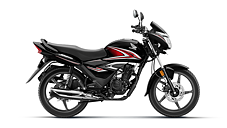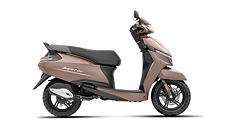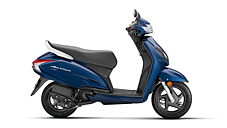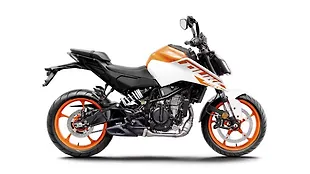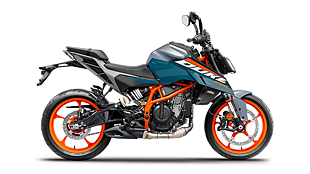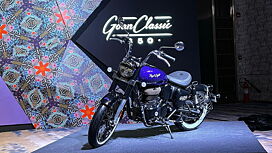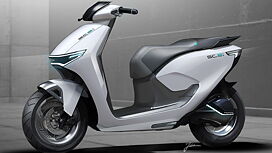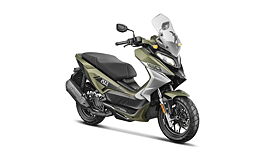Introduction

KTM India updated its entire portfolio to comply with the BS6 emission norms, and we recently got a chance to take the new 390 Duke for a test ride. The new bike pushes the envelope with new, first-in-segment features. But is it as exciting as the BS4 motorcycle? We rode the motorcycle around Bajaj’s Chakan test track to bring you these first impressions.
The Visuals

The transition from BS3 to BS4 back in 2017 brought comprehensive changes to the 390 Duke. This time though, KTM decided to keep the changes minimal. Thus, the styling cues feature a very familiar design. KTM has revised the colour palette, and the updated motorcycle is available in two options – Silver Metallic and Ceramic White. The Silver Metallic 390 Duke comes with an orange chassis, black sub-frame and orange wheels. The Ceramic White option features a black chassis, white sub-frame and black wheels.

The limited styling upgrade was most likely done to keep the price increase minimal during the BS6 transition. The motorcycle looks appealing and it is one of the most desirable products in its segment. The build quality feels decent but it’s not segment-leading. That said, we did not hear any unpleasant noises from the panels during our brief test ride. We would wait for a proper road test to further comment on the build quality.
The Package

The KTM 390 Duke is the most feature-rich motorcycle in its segment of the Indian market. The company had already set a benchmark with premium hardware such as full-LED lighting and Bluetooth-enabled, full-colour TFT display. The instrument cluster gets a plethora of information although the turn-by-turn navigation system, which is currently offered on the 390 Adventure, is not available for the 390 Duke.

In terms of performance, the 390 Duke BS6 retains the same power and torque output numbers as the BS4 motorcycle. Thus, the 373cc, single-cylinder, liquid-cooled motor continues to deliver 42.9bhp of power at 9,000rpm and 37Nm of torque at 7,000rpm. The slipper clutch equipped six-speed gearbox feels crisp and precise, while the new Quickshifter+ system enhances the overall experience.

The braking setup comprises of a 320mm disc at the front and a 230mm rotor at the back – both grabbed by ByBre sourced callipers.
The Ride

Push the starter button, and you are greeted by a relatively quieter exhaust note. Similar is the case with the engine character. While the power and torque numbers are identical to the BS4 motorcycle, the BS6 bike feels mellower than its predecessor. The power delivery is very linear, and there aren’t any surprises when the engine heads into the higher rev-band.

The engine feels uncomfortable under the 4,000rpm levels. It starts to pull away cleanly post that mark with a noticeable step-up in acceleration from 6,000rpm onwards. The 100kmph mark is crossed in the third gear with three more gears at your disposal. The long straight on Bajaj’s test track saw a top speed of 147kmph with a 90kg rider. My colleague, who hits the gym more often than I do, witnessed a top speed of 163kmph.
(All figures mentioned above are speedometer indicated)

The Quickshifter+ works fine most of the time, although the upshifts felt inconsistent on a few occasions. Part of the reason behind the uneven performance in the upshifts could be associated with the lack of pressure sensor on the gear lever. We found that the upshifts work best in the higher rev band. The clutchless downshifts, on the other hand, worked flawlessly. Purists can turn-off the system completely.

Anchoring hardware is carried forward from the BS4 model, and the brakes continue to offer a commendable feedback. The dual-channel ABS ensures that the hardest of brake lever inputs are forgiven easily. The Supermoto mode turns off the safety net at the rear wheel.

The suspension setup, too, is similar to the BS4 motorcycle, and the shock absorption tasks are handled by 43mm WP APEX upside-down forks with open-cartridge system at the front and a preload-adjustable mono-shock at the back. The setup feels firm, and confidence-inspiring in the corners. The geometry has not changed either. Thus, the BS6 390 Duke feels just as agile as its predecessor, and the bike feels comfortable with sharp direction changes. The Metzeler Sportec M5 (H-rated) tyres deliver plenty of grip to push the motorcycle around the corners.

The refinement levels are noticeably better than the BS4 motorcycle. There are, however, some vibrations still evident from the footpegs.
Our Take

The short, first ride experience was exciting, and the 390 Duke still puts a smile on the rider’s face. The power and torque output numbers do not suffer from any drop despite complying with the latest emission norms, and the motorcycle can still clock a good top-speed. The kerb weight of the vehicle has increased from 163kg to 167kg, but the difference is hardly noticeable.

The overall character, however, has become mellower than ever before. It’s like having the crispiest of French Fries made from the finest of potatoes but without the seasoning. That said, the KTM 390 Duke is still among the most value-for-money and fun-to-ride motorcycles in its segment. The 390 Duke BS6 retails at an ex-showroom, Delhi price of Rs 2,52,928, which is slightly higher than the BS4 bike’s Rs 2,48,212 tag. For that marginal premium, buyers get a BS6 compliant motorcycle that gets a Quickshifter+ as standard and feels more refined than its predecessor.
Photography by Kaustubh Gandhi
Gallery
1/72
KTM 390 Duke Instrument Cluster
Double Tap to Zoom











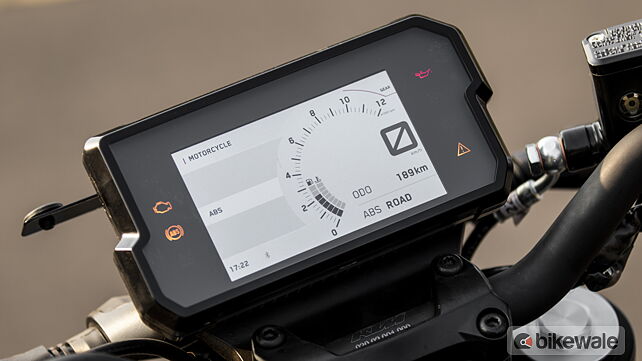







![[object Object] ThumbNail Images [object Object] ThumbNail Images](https://imgd.aeplcdn.com/642x361/n/cw/ec/45546/ktm-duke-390-instrument-cluster41.jpeg?wm=2&q=80)
![[object Object] ThumbNail Images [object Object] ThumbNail Images](https://imgd.aeplcdn.com/642x361/n/cw/ec/45546/ktm-duke-390-instrument-cluster68.jpeg?wm=2&q=80)
![[object Object] ThumbNail Images [object Object] ThumbNail Images](https://imgd.aeplcdn.com/642x361/n/cw/ec/45546/ktm-duke-390-instrument-cluster70.jpeg?wm=2&q=80)
![[object Object] ThumbNail Images [object Object] ThumbNail Images](https://imgd.aeplcdn.com/642x361/n/cw/ec/45546/ktm-duke-390-instrument-cluster71.jpeg?wm=2&q=80)
![[object Object] ThumbNail Images [object Object] ThumbNail Images](https://imgd.aeplcdn.com/642x361/n/cw/ec/45546/ktm-duke-390-instrument-cluster40.jpeg?wm=2&q=80)
![KTM 390 Duke [2021] Image KTM 390 Duke [2021] Image](https://imgd.aeplcdn.com/272x153/bw/models/ktm-390-duke-bs-vi20200130112504.jpg?q=80)
